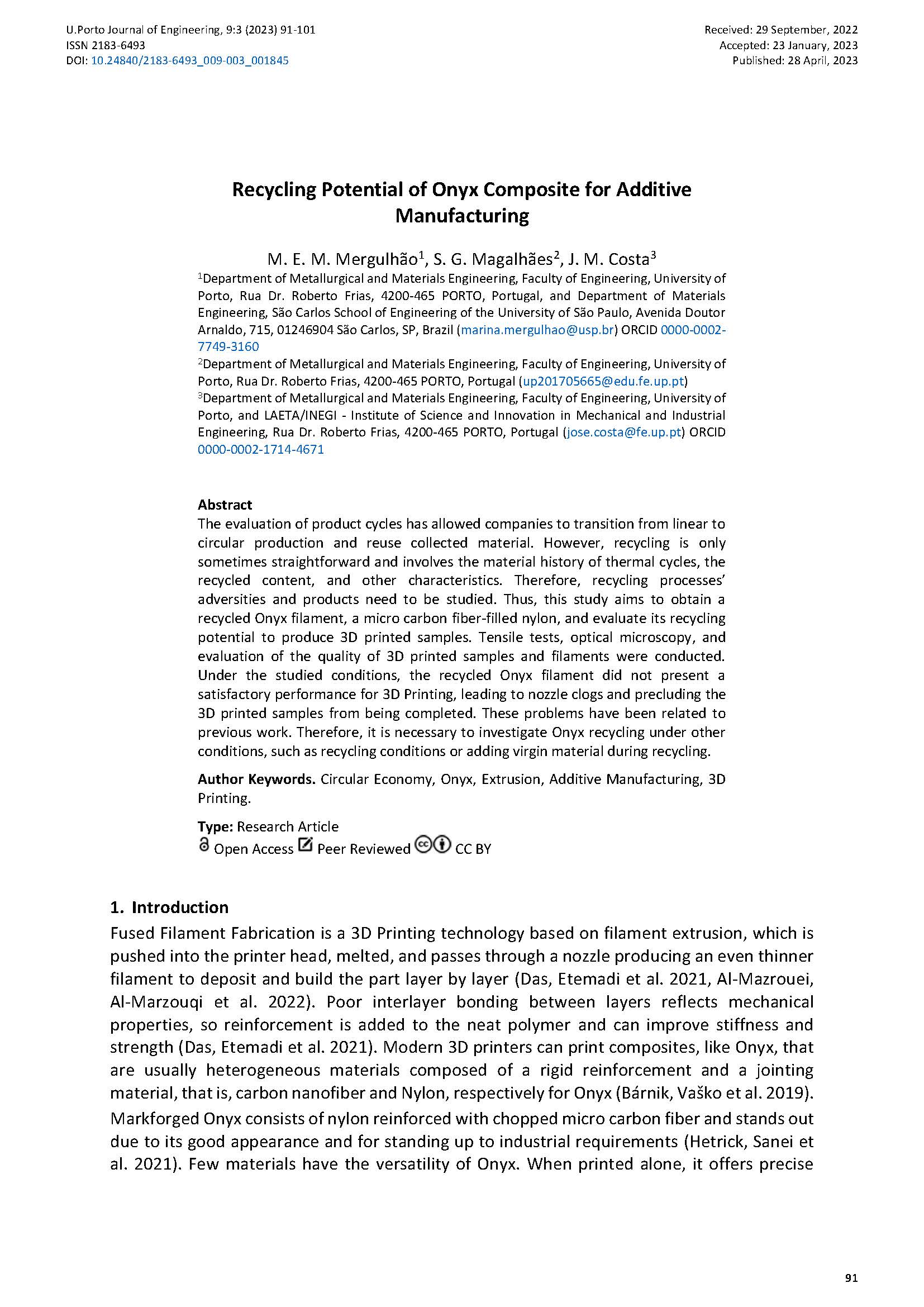Recycling Potential of Onyx Composite for Additive Manufacturing
Main Article Content
Abstract
The evaluation of product cycles has allowed companies to transition from linear to circular production and reuse collected material. However, recycling is only sometimes straightforward and involves the material history of thermal cycles, the recycled content, and other characteristics. Therefore, recycling processes’ adversities and products need to be studied. Thus, this study aims to obtain a recycled Onyx filament, a micro carbon fiber-filled nylon, and evaluate its recycling potential to produce 3D printed samples. Tensile tests, optical microscopy, and evaluation of the quality of 3D printed samples and filaments were conducted. Under the studied conditions, the recycled Onyx filament did not present a satisfactory performance for 3D Printing, leading to nozzle clogs and precluding the 3D printed samples from being completed. These problems have been related to previous work. Therefore, it is necessary to investigate Onyx recycling under other conditions, such as recycling conditions or adding virgin material during recycling.
Downloads
Article Details

This work is licensed under a Creative Commons Attribution 4.0 International License.
Authors who publish with this journal agree to the following terms:
- Authors retain copyright and grant the journal right of first publication with the work simultaneously licensed under a Creative Commons Attribution License that allows others to share the work with an acknowledgement of the work's authorship and initial publication in this journal.
- Authors grant the journal the rights to provide the article in all forms and media so the article can be used on the latest technology even after publication and ensure its long-term preservation.
- Authors are able to enter into separate, additional contractual arrangements for the non-exclusive distribution of the journal's published version of the work (e.g., post it to an institutional repository or publish it in a book), with an acknowledgement of its initial publication in this journal.
- Authors are permitted and encouraged to post their work online (e.g., in institutional repositories or on their website) prior to and during the submission process, as it can lead to productive exchanges, as well as earlier and greater citation of published work (See The Effect of Open Access).

